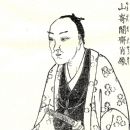 0
0
 0
0
rank #3 ·
Ikki Kita (北 一輝, Kita Ikki, 3 April 1883 – 19 August 1937; real name: Kita Terujirō (北 輝次郎)) was a Japanese author, intellectual and political philosopher who was active in early-Shōwa period Japan. A harsh critic of the Emperor system and the Meiji Constitution, he asserted that the Japanese were not the emperor's people, rather the Emperor was the "people's emperor". He has been described as the "ideological father of Japanese fascism", through which he advocated a complete reconstruction of Japan. Kita was in contact with many people on the far-right of Japanese politics, and wrote pamphlets and books expounding his ideas. The government saw Kita's ideas as disruptive and dangerous; in 1937 he was implicated, although not directly involved, in a failed coup attempt and executed. He is still widely read in academic circles in Japan.
